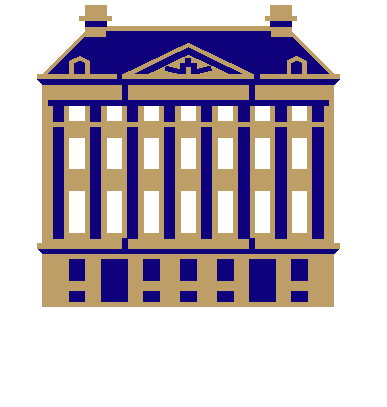KEPS
Knowledge Engineering for Planning and Scheduling
An ICAPS 2018 Workshop
Delft, The Netherlands
June 26, 2018
Despite the progress in automated planning and scheduling systems, these systems still need to be fed by carefully engineered domain and problem descriptions, and fine tuned for particular domains and problems. Knowledge engineering for AI planning and scheduling deals with the acquisition, design, validation and maintenance of domain models, and the selection and optimization of appropriate machinery to work on them. These processes impact directly on the success of real-world planning and scheduling applications. The importance of knowledge engineering techniques is clearly demonstrated by a performance gap between domain-independent planners and planners exploiting domain-dependent knowledge.
The workshop continues the tradition of several International Competitions on Knowledge Engineering for Planning and Scheduling (ICKEPS) and previous KEPS workshops. Rather than focusing only on software tools and domain encoding techniques –which are topics of ICKEPS– the workshop will cover all aspects of knowledge engineering for AI planning and scheduling. We seek original papers ranging from experience reports to the description of new technology in the following areas:
- formulation of domains and problem descriptions
- methods and tools for the acquisition of domain knowledge
- pre- and post-processing techniques for planners and schedulers
- acquisition and refinement of control knowledge
- formal languages for domain description
- re-use of domain knowledge
- translators from other application-area-specific languages to solver-ready domain models (such as PDDL)
- formats for specification of heuristics, parameters and control knowledge for solvers
- import of domain knowledge from general ontologies
- ontologies for describing the capabilities of planners and schedulers
- automated reformulation of problems
- automated knowledge extraction processes
- domain model, problem and plan validation
- visualization methods for domain models, search spaces and plans
- mapping domain properties and planning techniques
- plan representation and reuse
- knowledge engineering aspects of plan analysis
We are pleased to accept papers based on recent publications from other (non ICAPS) venues such as specialized conferences (AAMAS, ICRA, KR, ...), or general AI conferences (AAAI, IJCAI, ECAI, ...). This must be however clearly indicated in the submitted paper.
Submission Procedure
Two types of papers can be submitted. Full technical papers with a length up to 8 pages are standard research papers. Short papers with a length between 2 and 4 pages can describe either a particular application, or focus on open challenges.
Submissions of papers being reviewed at other venues are welcome since this is a non archival venue and we will not require a transfer of copyright. If such papers are currently under blind review, please anonymize the submission.
All papers should conform to the AAAI style template. The papers must be submitted in a PDF format via EasyChair. Submissions will be reviewed by at least two referees.
Important Dates
- Paper submission deadline:
March 15, 2018March 25, 2018 (extended deadline) (UTC-12 timezone) - Notification:
April 16, 2018April 20, 2018 - Camera-ready paper submission: May 1, 2018
Proceedings
KEPS proceedings can be downloaded here.Program
LOUGA: Learning Planning Operators using Genetic Algorithms
Jiri Kucera and Roman Bartak
Discovering Numeric Constraints for Planning Domain Models
Alan Lindsay and Peter Gregory
Learning Numerical Action Models from Noisy and Partially Observable States by means of Inductive Rule Learning Techniques
Jose A. Segura Muros, Raul Perez and Juan Fernandez-Olivares
Distributed Planning and Model Learning for Urban Traffic Control
Alberto Pozanco, Susana Fernandez and Daniel Borrajo
Towards a Framework for Understanding and Assessing Quality Aspects of Automated Planning Models
Mauro Vallati and Lee Mccluskey
On Learning from Human Expert Knowledge for Automated Scheduling
Neil Yorke-Smith
Building Support for PDDL as a Modelling Tool
Derek Long, Jan Dolejsi and Maria Fox
Modelling Sequences of Processes in PDDL+ for Efficient Problem Solving
Elad Denenberg and Amanda Coles
Thomas L. McCluskey
Domain Model Analysis using Static Graphs
Rabia Jilani
On the use of ontologies to extend knowledge in online planning
Mohannad Babli, Eliseo Marzal and Eva Onaindia
Evaluating a Knowledge-Based Scheduling Assistant
Neil Yorke-Smith
Improving Planning Performance in PDDL+ Domains via Automatic Predicates Reformulation
Santiago Franco, Mauro Vallati and Alan Lindsay
Compiling Away Soft Trajectory Constraints in Planning
Benedict Wright, Robert Mattmüller and Bernhard Nebel
Organizing Chairs
- Lukas Chrpa
- Ron Petrick
- Mauro Vallati
- Tiago Vaquero
Program Committee
- Roman Bartak
- Daniel Borrajo
- Alan Lindsay
- Simone Fratini
- Lee Mccluskey
- Amedeo Cesta
- Simon Parkinson
- Andrea Orlandini
- Patricia Riddle
- Susana Fernandez
- Shirin Sohrabi
- Dimitris Vrakas












